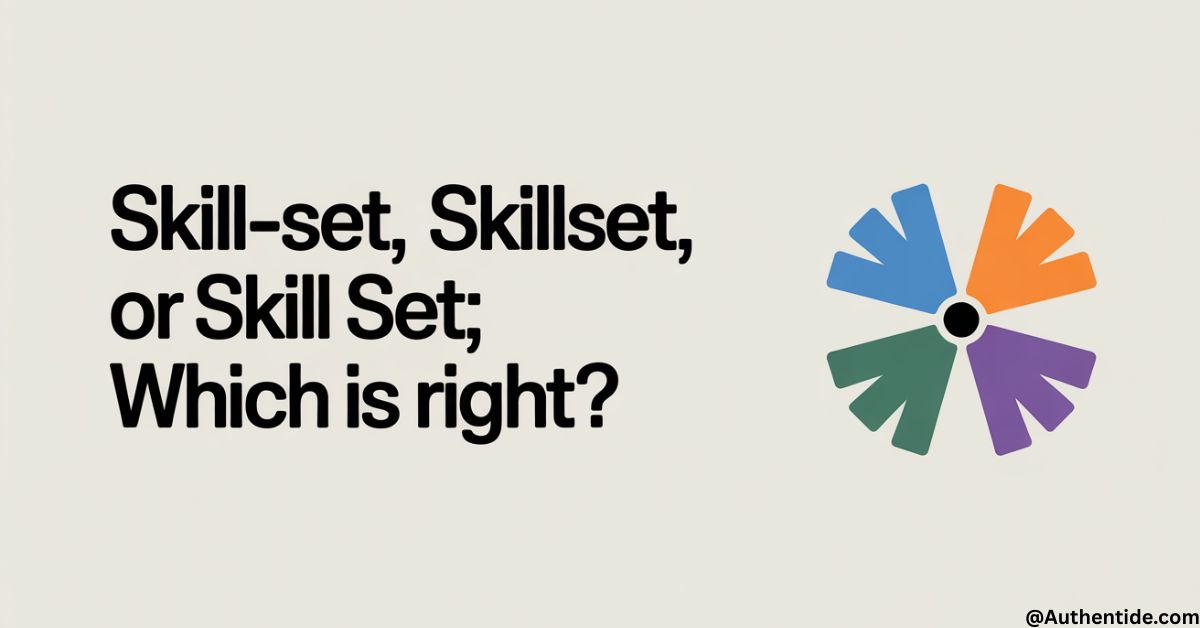Skill set is a term that often sneaks into resumes, job descriptions, and professional bios—but there’s a lingering question: Is “skillset” one word or two? Or maybe even hyphenated as “skill-set”? You’ve probably seen all three floating around, but only one is officially recognized in formal English.
In a world where language evolves with lightning speed, the way we write common phrases like this actually matters, especially in professional settings. Whether you’re polishing a résumé, crafting a job listing, or writing an email to a recruiter, choosing the correct form of skill set shows attention to detail and respect for standard English usage.
So, which is it? “Skill set,” “skillset,” or “skill-set”? Let’s dive into the confusion, the history, the grammar rules, and the practical usage examples that will settle this debate once and for all.
Why Is There Confusion?
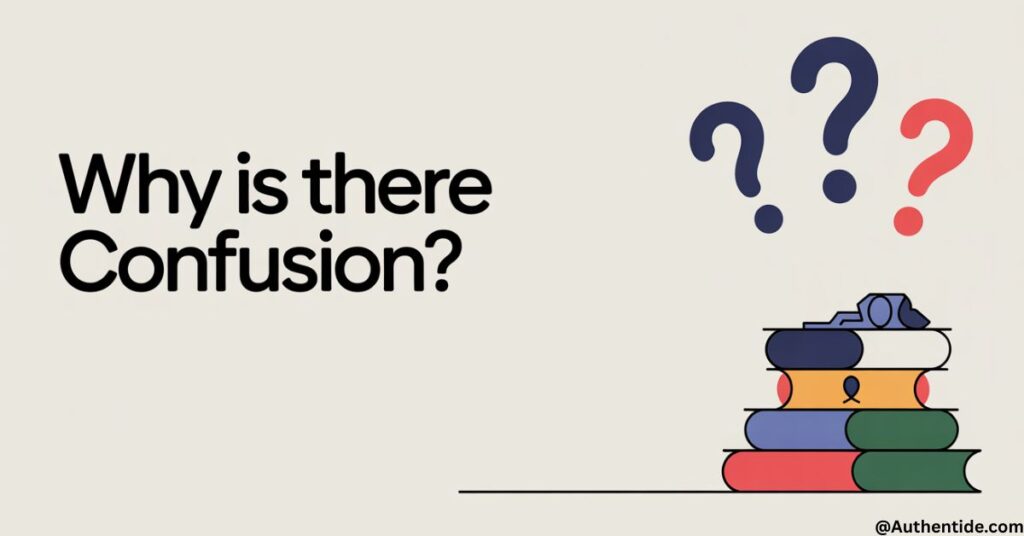
The confusion stems from how frequently the phrase appears in professional contexts. Over time, many have started treating skill set as a compound noun, much like “website” or “email,” which eventually evolved from two separate words into one. While skillset may look cleaner or more modern, it’s not technically accepted in formal grammar guides. Meanwhile, the hyphenated skill-set tries to act as a compromise, though it’s largely considered outdated or incorrect.
What Is a “Skill Set”?
The correct form is “skill set”—two words. This refers to a collection of skills or a range of competencies someone possesses, especially in a professional or educational context.
Example (Email):
Hi Rebecca,
We’re excited to review your application. Your skill set in project management and data analysis aligns well with our current needs.
Warm regards,
— Lucas, Hiring Manager
This version is supported by authoritative grammars, including Merriam-Webster, the Chicago Manual of Style, and Oxford Dictionaries. It is universally accepted in resumes, academic texts, and business communication.
What Is “Skillset”?
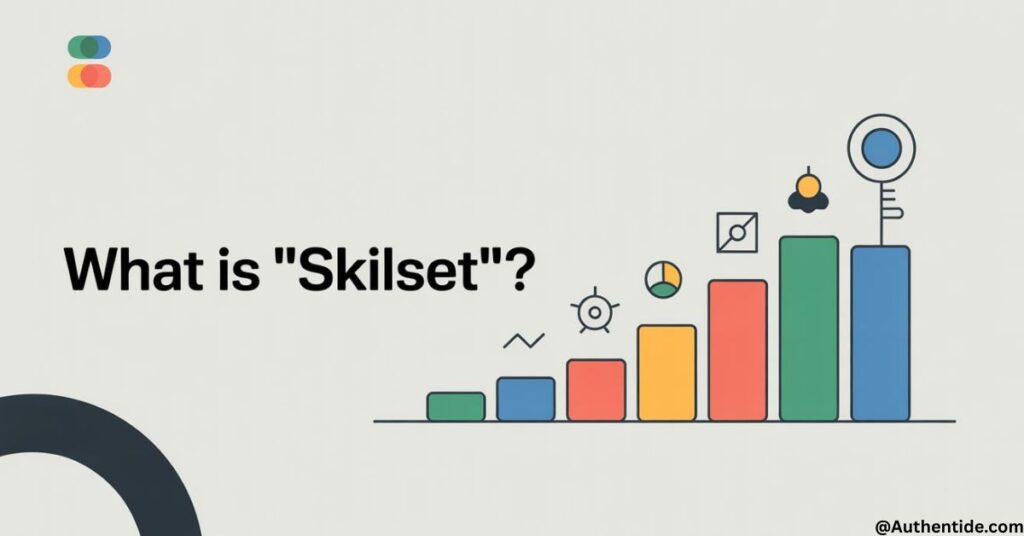
Skillset (as one word) is commonly used in informal contexts, and while it may appear in blogs or casual writing, it’s not considered standard English.
Example (Informal Email):
Hey Jamie,
I think your skillset in UX/UI design could be exactly what this startup needs. Let’s chat.
— Alex
So, is skillset a word? Technically, it has gained traction in digital spaces, but major grammar and style guides do not endorse it. If you’re writing anything professional or academic, you should stick with your skill set.
“Skillset” vs. “Skill Set”: The Differences and the Correct Usage
Let’s get one thing straight: Skill set is the gold standard. It clearly communicates that you’re referring to a set of skills—a collection of abilities like hard skills, soft skills, and technical skills.
Skillset, while trendy, can make your writing look careless or unpolished in formal environments. In corporate communications, clarity and professionalism should always win over convenience.
Use:
“His skill set includes graphic design, content strategy, and SEO.”
Avoid:
“His skillset includes graphic design…”
What About “Skill-Set” (Hyphenated)?
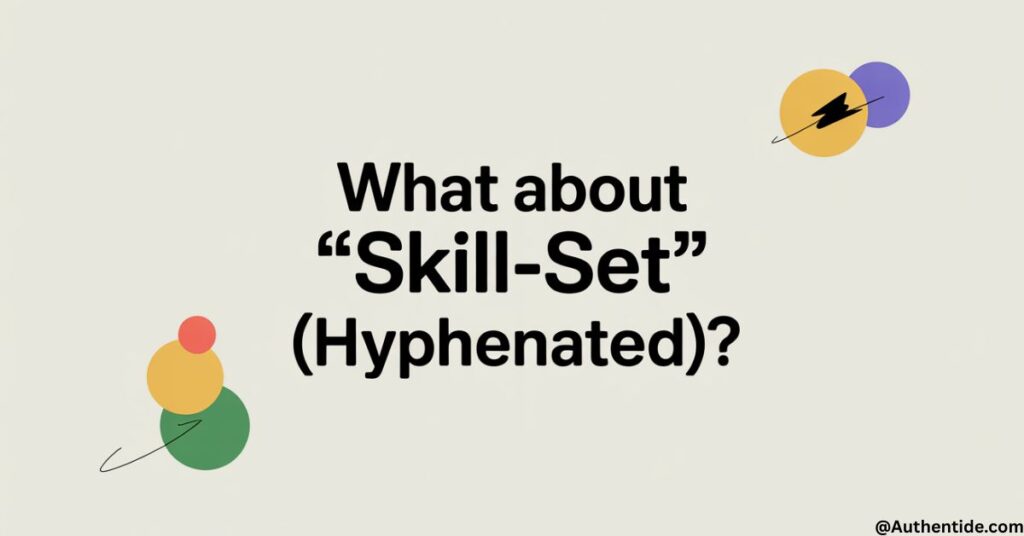
You may stumble across skill sets, especially in older documents or non-native English contexts. But it’s not standard. According to every major grammar guide, skill set is considered incorrect or outdated.
Example (Incorrect Email):
Dear Mr. Singh,
Your skill-set matches our expectations perfectly.
Best,
HR Team
You’d be better off dropping the hyphen and writing skill set—especially if you want to be taken seriously.
Historical Usage of “Skill Set” and “Skillset”
Historically, the phrase skill set emerged in the late 20th century as a way to describe job qualifications in a business context. As industries evolved, the idea of bundling abilities into a collective label became common—hence, set of skills became skill set.
Over time, informal writing began compressing this into skillset, mimicking how “website” and “email” developed. However, style guides have not caught up with this informal evolution.
Regional Differences in Usage
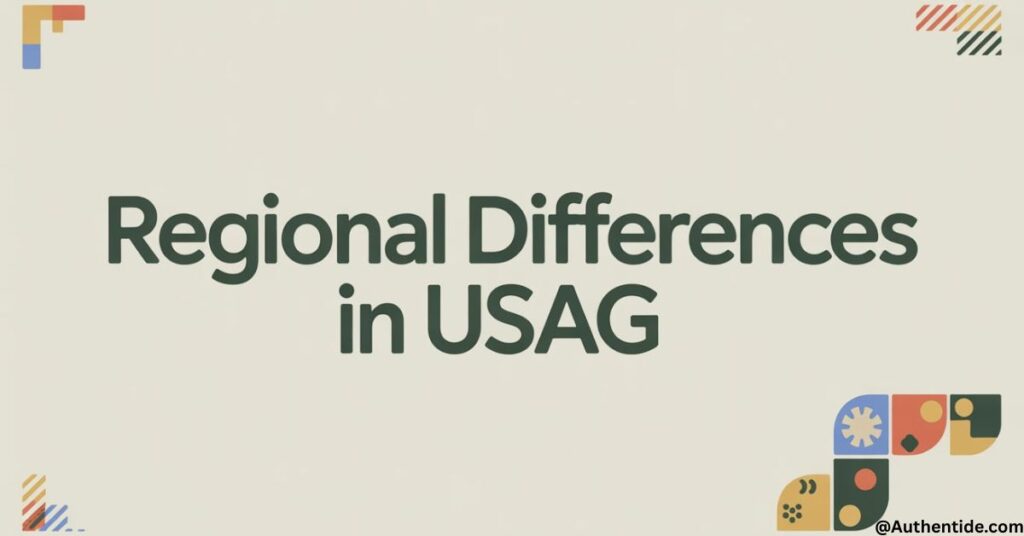
Regional preference may play a minor role. For instance, in the United States, skill set is overwhelmingly favored in both academic and business writing. In contrast, some UK and Australian blogs casually use skillset, although it’s still unofficial.
But here’s the key takeaway: No English-speaking grammar authority recommends “skillset” as correct usage.
Grammar and Style Guides on “Skill Set”
Here’s what style guides and dictionaries say:
| Authority | Recommendation |
|---|---|
| Merriam-Webster | ✅ Skill set only |
| APA Style | ✅ Two words |
| Chicago Manual of Style | ✅ Two words |
| Cambridge Dictionary | ✅ Two words |
| Grammarly | ✅ Recommends skill set |
| Microsoft Word Grammar | ✅ Flags skillset as incorrect |
Public Perception and Trends
If you Google “is skillset a word,” you’ll see debates in forums, Reddit threads, and grammar blogs. People are curious, and rightfully so. Even Microsoft Word autocorrects skillset into skill set.
Still, because the internet is full of mixed messages, it’s important to rely on trusted grammar sources. Not social media trends.
Examples in Context
Let’s compare these terms in real-world contexts:
Professional Resume (Correct):
Proficient in Adobe Suite, HTML/CSS, and content marketing. Strong skill set in visual communication and storytelling.
LinkedIn Bio (Incorrect):
Over 10 years of experience with a strong skillset in SaaS product design.
Cover Letter (Incorrect – Hyphenated):
My skill-set makes me a strong candidate for the role.
Notice how the professionalism drops off the moment the incorrect versions appear?
Synonyms and Related Terms
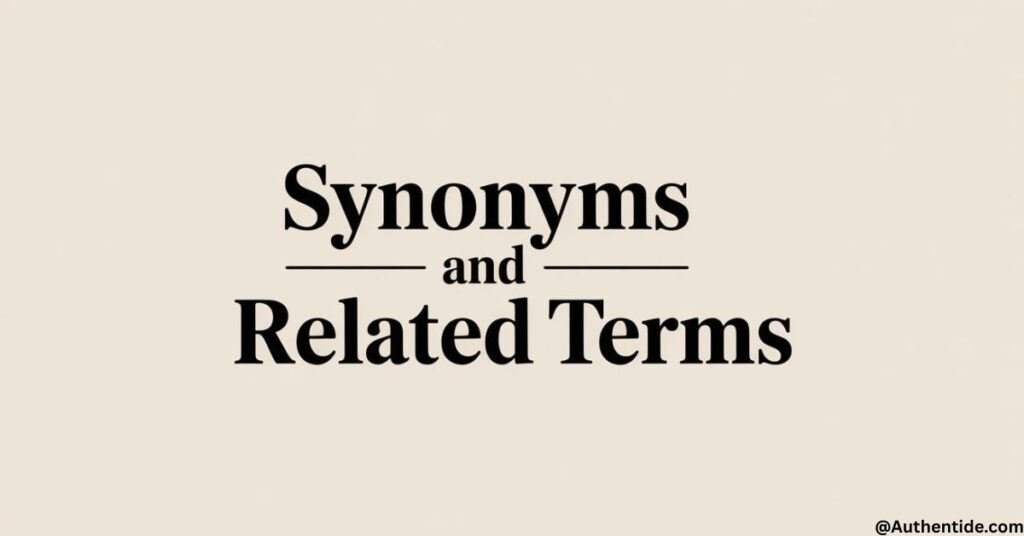
Instead of repeating skill set too often, try mixing in some synonyms and related terms to keep your content dynamic:
- Competencies
- Proficiencies
- Expertise
- Collection of abilities
- Qualifications
- Range of skills
- Transferable skills
These not only vary your language but also enhance SEO value by aligning with LSI terms.
Most Important Paragraph
The section titled “Skillset” vs. “Skill Set”: The Differences and the Correct Usage is your anchor paragraph. It answers the key question directly, settles confusion, and offers practical examples. If a reader skims the article, this is where they’ll get the most value. Use this paragraph to:
- Reinforce the correct usage (skill set)
- Discourage incorrect or informal versions (skillset, skill-set)
- Encourage clarity and professionalism in writing
Consider using this section as a standalone excerpt in newsletters or summary boxes.
Conclusion
When in doubt, always go with skillset two words, no hyphen. It’s clear, grammatically correct, and respected in every professional circle. While you might stumble upon skillset or skill-set, they simply don’t hold up under scrutiny.
Want your writing to shine in résumés, emails, and corporate decks? Stick to the gold standard—and polish your collection of skills with precision and style.

Your go-to place for smart synonyms and celebrity updates. Muhammad Hassan Abid is dedicated to creating useful, engaging content that informs, inspires, and truly serves your curiosity

